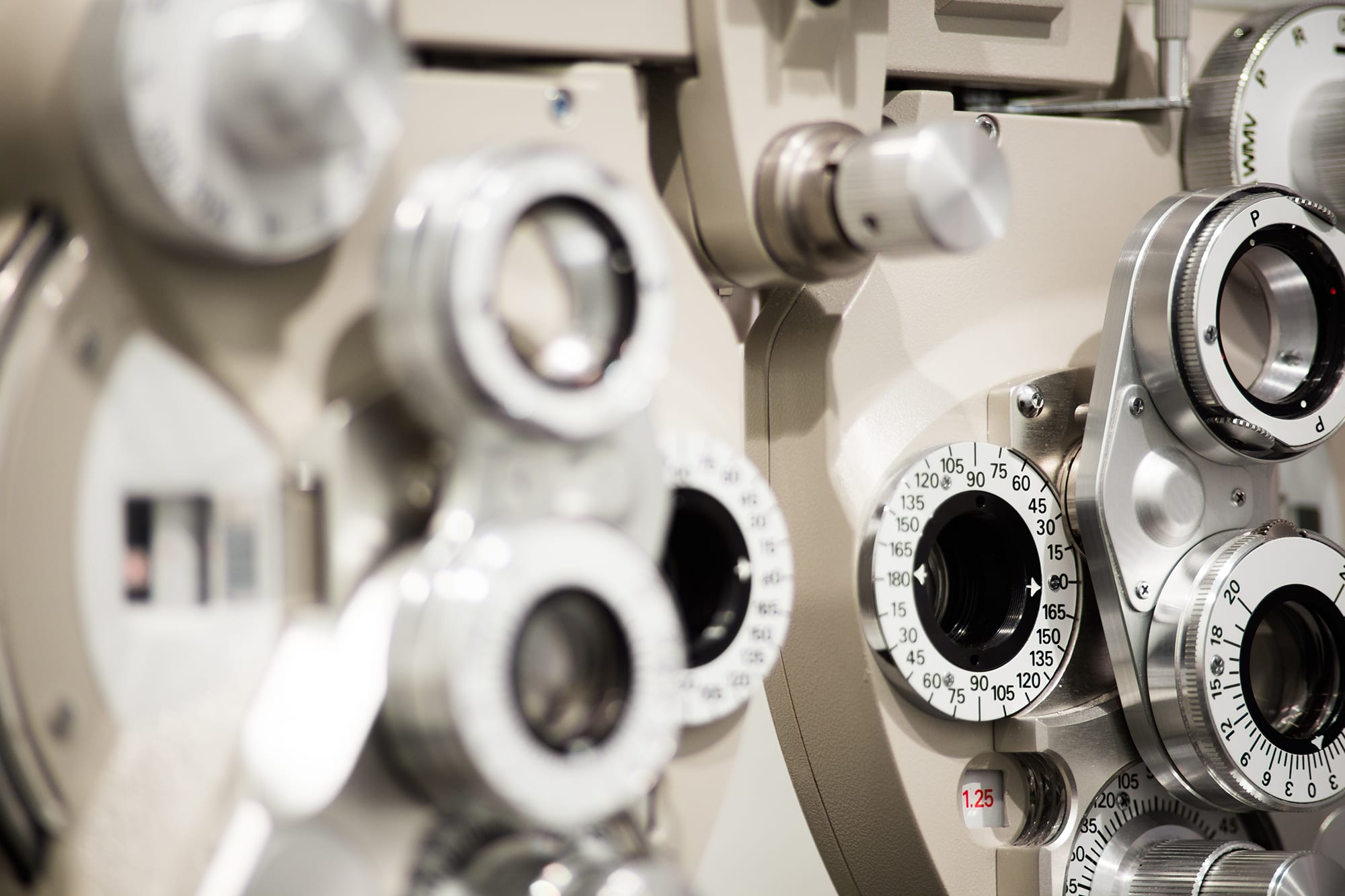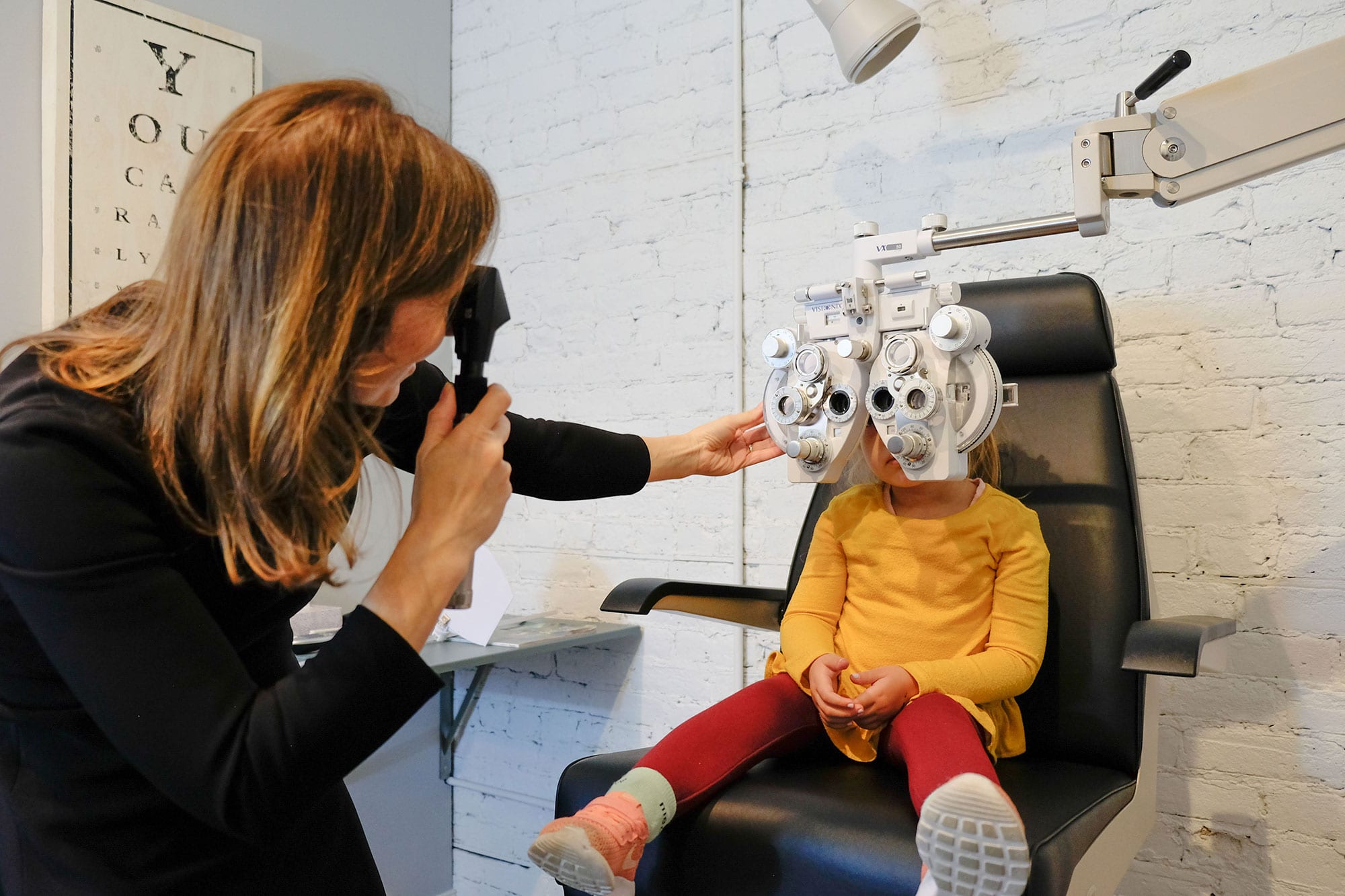1. Eye Exam: How Often Should I Go?
Regular eye exams are suggested for people of all ages, regardless of the quality of their vision. Too often, people assume that they don’t need to see an eye doctor because their vision seems fine. One of the most common questions we hear: “I need to schedule an eye exam, how often should I come in?”
2. Eye Exam: How Often for Healthy Eyes?
The general recommendation is that every person should have an eye exam every 1 – 2 years to maintain good eye health. But there are instances when eye exams are needed more frequently due to individual health concerns. The need for frequent eye exams increases with age. So, the best solution is to ask your optometrist for recommendations about how often you should schedule an eye exam. Your eye doctor will determine several factors when providing a recommendation about the frequency of your exams: age, need for corrective lenses, other medical concerns, and risk factors. For example, patients with diabetes often need to visit an optometrist frequently due to the higher risk of eye disease associated with diabetes.
3. Signs You Need an Eye Exam
Here are a few indications that it is time for you to schedule an eye exam:
• School Year: It is estimated that children receive 80% of the information in the classroom through visual interaction. Parents can support their child’s education by scheduling an eye exam at the beginning of each school year. Low-risk children might only need an appointment every two years, based on the eye doctor’s advice.
• Symptoms: Pay attention to symptoms that might indicate an eye problem, such as floaters, flashes of light, seeing spots, itching, dryness, or red eyes.
• Health Conditions: Certain health conditions can impact your visual health. Exams might be required more frequently for patients with a diagnosis or family history of diabetes or glaucoma.
• Calendar: When was the last time you had an eye exam? Check the calendar. If it’s been over a year, then it is probably time to schedule the appointment. Also, consider the timing based on vision insurance benefits. For example, you can maximize your annual benefits by using the available services before the end of the calendar year.
• Difficulty Seeing: Do you find it difficult to drive at night or you are having a hard time seeing the words on a page? These issues can often be corrected with glasses or contacts. An eye exam is the first step to identifying the right treatments that are needed for your eyes.
• Co-Occurring Conditions: Sometimes, seemingly unrelated symptoms could be connected with your eyesight. For example, you might be suffering from headaches, blurred vision, or eye strain if you spend a lot of time looking at a screen throughout the day. If you suspect that you might need vision treatments, then don’t delay the opportunity to talk to a doctor. Often, time is a critical factor in protecting your eyesight and reducing the risk of complications in the future. Contact us at Vision Boutique to schedule an exam and talk to an eye care expert.







